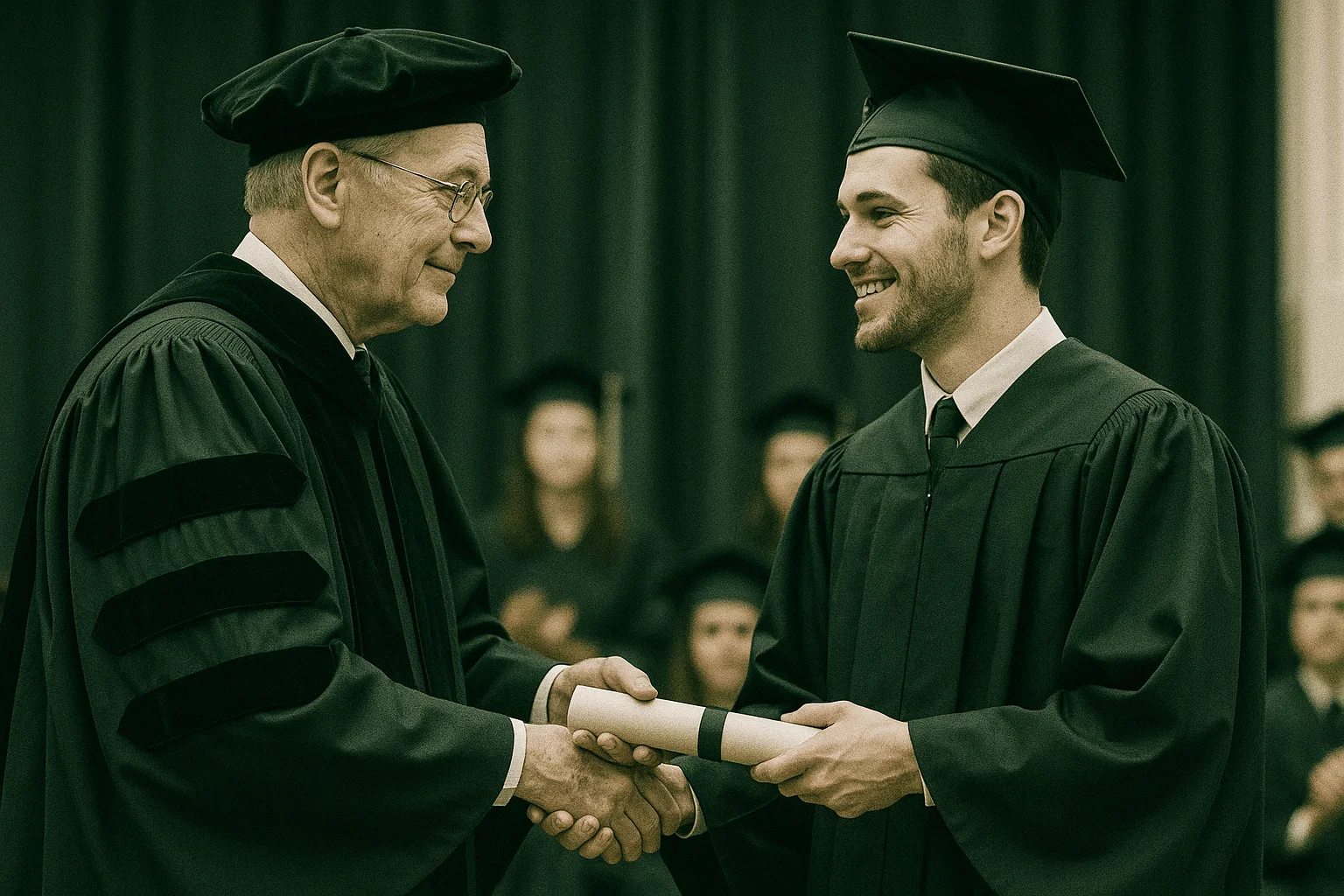Growing up with saving as the default helped me graduate debt-free. The real inheritance? A mindset of freedom, preparation, and calm.
When I graduated from university without a single euro of student debt, I knew it wasn’t just luck. Sure, I had some help: government study financing and two years of decent pay during my studies. But the biggest reason was much less glamorous: I had an unconscious saving mindset drilled into me from childhood.
That mindset was instilled and cultivated by my parents. It allowed me to live a great student life, cover my costs, and still walk away debt-free. Today, I know just how rare that is.
Growing Up with Saving as the Default
My parents both grew up in lower middle-class families, where money was tight and every guilder (no euro yet at that time) mattered. My mom especially spent her twenties living paycheck to paycheck, stretching coins until they squeaked. Out of necessity, she developed a saving instinct so strong it might as well have been her sixth sense.
By the time I came along, our household was financially stable. We weren’t swimming in money, but the idea that money equals safety was everywhere. Saving wasn’t something you did on the side. It was the default. My parents are currently living in a paid off house and strategizing the right moment to retire before reaching the official retirement age in The Netherlands, which makes me extremely proud.
One clever parenting trick they did? Giving me my own bank card embarrassingly late, which must have been somewhere between the age of 16 and 17. At the time, I thought it was a human rights violation and argued about it constantly. Looking back, it was genius parenting: without easy access, all my incoming money just piled up. If I wanted to spend, I had to explain why to myself first and my parents second. They never blocked a purchase, but they did force me to think before I acted. The result was that before I ever held plastic in my own hand, I had already unconsciously learned that saving first and spending thoughtfully was normal.
First Paychecks, First Choices
By the time I earned my first real paycheck, those lessons were baked in. I got a job at a supermarket, which still remains one of the most fun jobs I’ve ever had because the team truly felt like family. The party mode was always on: We could eat and drink anything thanks to our teenage metabolism, and do it all again the next day. I even got my first kiss after a work party from one of the cashier girls, which probably did more for my motivation than any paycheck ever could. Overall, I felt extremely valued as a person and that reflected in my work ethic, joy and loyalty. I worked ridiculous hours and suddenly found myself with more cash than I’d ever had before.
Most of my colleagues spent their money fast: scooters, cigarettes, gadgets, fashion. I got an Excel sheet with a growing savings balance. Different priorities, different outcomes. When I did spend, it was on food, drinks, friends and fun. A better return, then and now. And over time, a serious buffer started to build.
Living on a Buffer Through University
By my second year of university I’d moved out, and that savings buffer covered rent and living expenses. Sure, my account balance shrank month by month. But unlike most of my friends, I never had to call home with the dreaded ‘Can you transfer some money?’ text.
Then came a big break: In my third year, I was offered a part-time job at my university. The compensation was generous: Somewhere between €1,300 to €1,500 a month, a fortune for a student. Again, I saved a large part of it. That cushion allowed me to finish both my bachelor and master’s without a cent of debt.
By the time I graduated, my account balance was close to zero. Even though that moment was very stressful, it was exactly the point: I had spent years preparing, saved intentionally, invested in myself and graduated debt-free. The moment I got my first real job, I could start building it back up.
The Lessons Behind the Numbers
Looking back, I realize two big lessons came out of this period:
1. Privilege matters, but mindset matters more.
I was fortunate, not everyone gets the same opportunities or head start. My background and family situation played a big role. But it was the saving mindset my parents passed down that made the real difference. Without it, I could have just as easily spent like my peers and ended up with debt.
2. Preparation buys freedom.
Having a buffer changes everything. It means you can pay when something unexpected comes up, or simply say “yes” to opportunities without panicking about money. My parents taught me that lesson long before I ever opened my first textbook.
Final Thought
Graduating debt-free wasn’t about being a financial genius. It was about adopting my parents’ mindset: saving as the default, spending thoughtfully, and building a buffer even when it seems unnecessary.
That mindset didn’t just keep me afloat during university, it kept me from drowning in debt. And that, I think, is the most valuable inheritance I could have asked for (along with my dad’s humor and my mom’s stubbornness). It shaped the way I see money today: not as something to flaunt, but as a tool for freedom, calm, and choice.
What money habit did you pick up from your parents, and do you still use it today?
Many readers share these lessons in their own circles. If this story gave you something, feel free to pass it on!

Leave a Reply